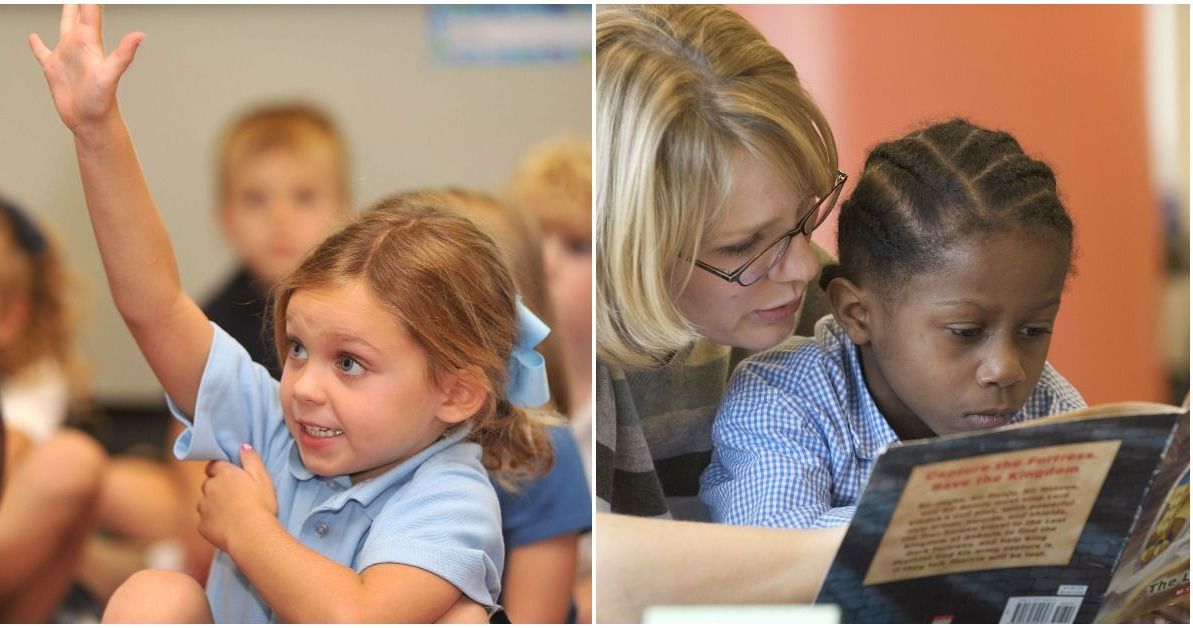If you know any new parents - or are one - you've probably heard all about gifted testing.
These days, schools are putting younger and younger children through special tests meant to identify if they're strong learners.
It's tricky, because some experts can't even agree over what makes a child gifted in the first place.
"The majority of gifted children in the schools are never identified."

The National Association for Gifted Children described giftedness as "those who demonstrate outstanding levels of aptitude or competence in one or more domains."
But David Palmer, author of the book IQ Testing and Gifted Education, says that it's not so easy to spot a gifted child - even with tests.
"In fact," he wrote, "some estimate that the majority of gifted children in the schools are never identified."
Often, gifted students depend on individual teachers and even parents to recognize their potential.
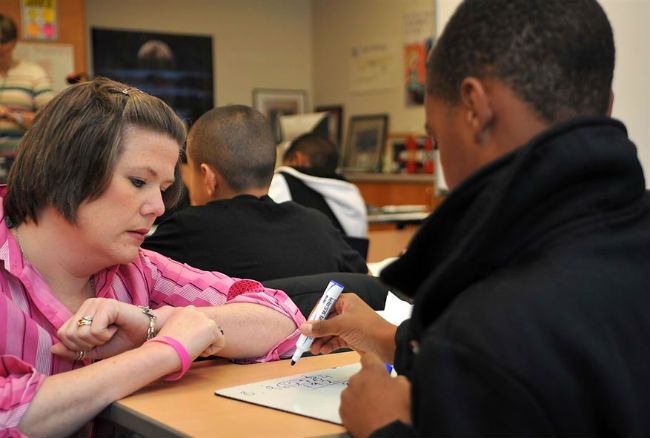
And it's important to spot them early, because gifted children often have learning differences that need extra attention.
Look out for these seven signs that gifted children often show.
1. Bad Behavior In School
Acting out in school is not really connected to your learning ability.
Whether you're a good student or a bad one, we all go through phases where we don't work as hard as we could.

But gifted students often have specific problems in school that are because of their strong learning skills, not in spite of them.
It's common for gifted students to act out, not fit in with other children, ignore classwork, or not pay attention in class - and we'll mention the reasons for each behavior later in this list.
These behaviors are sometimes mistaken for learning differences, including conditions like ADHD and autism spectrum disorders.
Extra testing can help identify your child's needs, and identify what's causing their bad behavior.
2. Advanced Language Skills

It's important to compare children to other students their own age, and judge whether their language skills are noticeably better.
Gifted children often have an especially large vocabulary for their age. They tend to speak quickly, and use long, complicated sentences before other children do.
One test involves giving your child a group of complex requests. For example, "Go to the cupboard and take your cup, then put it next to your plate and put my cup back in the cupboard."
Does your child have trouble understanding the directions, or follow them easily?

Some parents even notice their children "butting in" on conversations between adults, then speaking to their friends with simpler words and phrases.
But not all gifted children are chatty. Even if they are strong readers and writers, some may be very reserved, especially if their friends don't encourage them to speak their mind.
3. Curious Minds

Parents of gifted children often call their kids "mental sponges," because they seem to soak up new information all the time.
They are often naturally curious, and ask odd or surprising questions about the world around them.
This curiosity can help them pick up new skills more quickly, and parents are often surprised by the things their kids know.

But, on the other hand, gifted children are known for fixating on subjects that interest them and shutting out everything else.
Sometimes these fixations are so intense that they get in the way of schoolwork, or making friends.
Because of their unique learning habits, gifted children can be very insistent on doing things their way, especially when trying something new.
4. Strong Motor Skills

Experts are still divided on why gifted students think and act the way they do. These debates often drag in thorny questions like "nature versus nurture."
Palmer writes that gifted children seem to benefit from strong "neural connections," which make it easier to process information of all kinds.
Parents of gifted children often describe their kids hitting developmental milestones - walking, taking - faster than other children.
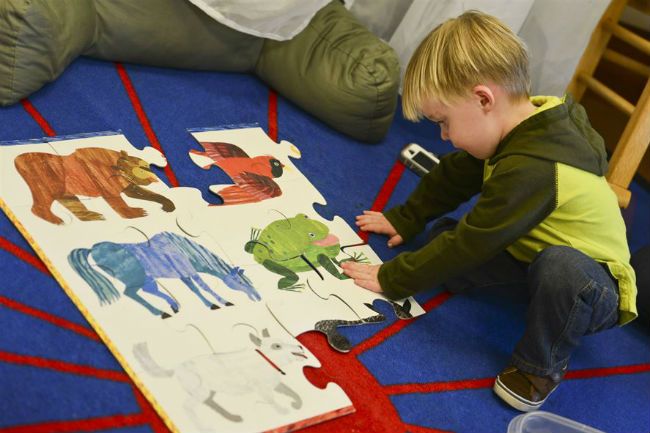
Many of them also seem to have a knack for tricky activities, like assembling blocks or solving 3D puzzles.
But, oddly, it's just as common for gifted students to have dysgraphia, or trouble writing by hand.
One theory is that they just don't have the interest or attention to practice handwriting at a young age.
5. Differences In Focus

Gifted kids are often said to think - and move - at a mile a minute. But it would be wrong to say they're all scatterbrained and hyperactive.
Parents describe their gifted children as being intensely focused on their favorite topics, or chronically bored by everything, and every state in between.
While this can be helpful - a gifted math student who obsessively studies might do great on a test - it can also get kids into trouble.
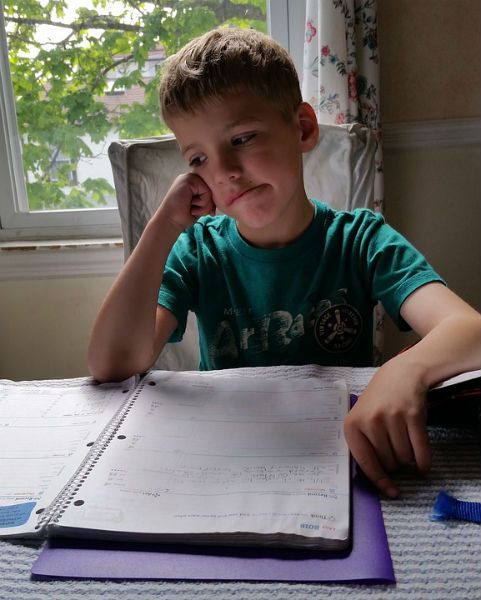
Parents often complain that their child is "very smart, but just doesn't apply herself."
The student might just have trouble focusing on classes that they don't find challenging.
6. Emotional Intensity

It's common for parents to describe gifted children as "little grown ups," who seem old for their age.
In fact, gifted children seem to develop feelings like empathy much faster than their classmates, and react to things in oddly "adult" ways.
In other cases, children seem to be unusually in touch with their emotions, strongly reacting or overreacting to small problems.
Their strong and thoughtful feelings can help them relate to adults, and older children.
But it also makes them stand out in school, where bullies thrive on making children react to insults and mean behavior.
7. Underperforming In School

By now, it should be clear that not all gifted students bring home straight As, or fit in easily with their classmates.
More often than not, gifted students seem to excel in some classes or activities, and struggle with others.
Or, their grades may be perfect, while teachers are concerned about their behavior in class.
Often, parents say they know their children are gifted, but their child's test scores don't prove them right.
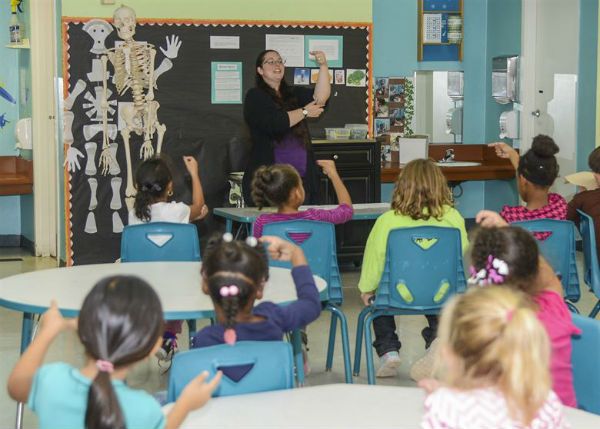
It's common for children to limit their success in class, as a way to blend in with their friends, or avoid the pressure of high grades.
They may also suffer from test anxiety, or a learning style that's not suited to the classroom.
You've learned that it's not always easy to spot a gifted student, but it's important to ask the right questions!
Here are more parenting articles that might interest you:
- "Free-range parenting" laws have parents divided.
- 19 unique parenting rules Prince William and Kate Middleton have to follow.
- Pink gets real about parenting on Reese Witherspoon's new show.
[H/T: Psychology Today]
